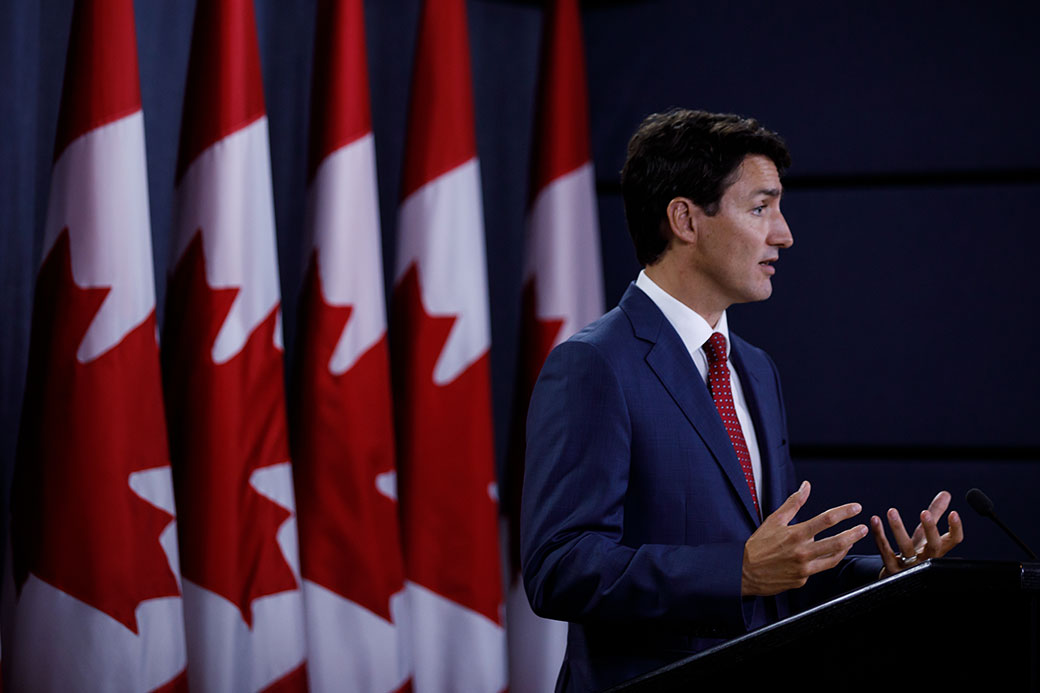Pierre Elliot Trudeau was the last Canadian prime minister to use the powers accorded to the federal government under the Constitution Act (1867) for purposes other than to serve large corporations.
Elected leader of the Liberal Party on the fourth ballot in April 50 years ago, Trudeau described the Canadian Constitution as having provided for virtually any situation, except having a weakling as prime minister.
His remarks were directed at Brian Mulroney, who in 1987 was busily redistributing power to the provinces through the Meech Lake Accord, after having seriously curtailed parliamentary authority under the terms of the Canada-U.S. free trade agreement.
Though Meech died through the unwillingness of the Manitoba Legislature to proceed with its adoption over the opposition of Indigenous MLA Elijah Harper, subsequent federal governments have to all intents in purpose implemented the decentralization envisaged by Meech.
The process of weakening federal power culminated with Stephen Harper, who dismantled most federal regulations protecting the environment in order to facilitate resource exploitation, specifically in the Alberta bitumen sands.
With Bill C-69, Justin Trudeau proposes to re-introduce federal regulation of the environment as he promised to do in the last election campaign. What he has not done is require existing projects like the Trans Mountain pipeline to be reviewed under the new legislation, which was also a Liberal promise.
Instead of being inspired by his father and using federal constitutional powers effectively to promote environmental protection, Justin Trudeau has adopted the sunny ways approach — decentralized federalism — that characterized Sir Wilfrid Laurier, Canada’s seventh prime minister from 1896 to 1911.
Justin Trudeau campaigned on the idea that the provinces would take lead responsibility for crafting the policies needed to address climate change, rein in polluting industries, and limit air and ground water pollution.
Provincial elections later this year in Ontario and Quebec announce two changes in government. Each represents a big headache for Trudeau. In Ontario PC Leader Doug Ford wants nothing to do with the Ontario-Quebec-California cap-and-trade linking deal implemented January 1, 2018. CAQ Leader François Legault thinks Quebec should get out of a cap-and-trade arrangement that does not include all U.S. states and Canadian provinces.
Neither of the two opposition leaders currently expected to assume office are willing to replace cap and trade with carbon taxes. Yet the Trudeau government expects each province to be pricing carbon, and either taxing it or providing a cap and trade mechanism to reduce emissions.
So far, energy-rich Saskatchewan has refused to do either.
The NDP government of Alberta has been a major ally of Ottawa in promoting a carbon tax to reduce emissions of greenhouse gases.
Waiting in the wings to replace Premier Notley in the next election is Jason Kenney, an avowed opponent of carbon taxation. Kenney has taken to blaming Trudeau for his unwillingness to push the Trans Mountain project, beat back dogged opposition, and calm environmental objections on the West Coast.
The suspension of its Trans Mountain pipeline project by Texas-based Kinder Morgan over the weekend puts Justin Trudeau in a pickle. Kinder Morgan blames the B.C. government of John Horgan for delaying the project. Alberta premier Notley has promised to bring in legislation to make B.C. pay economic consequences for holding up the project.
Without federal leadership, the conflict between Alberta and B.C. threatens to get nastier.
Coupled with inaction by Canada since the adoption of the 1997 Kyoto Accord, the arrival of governments in Ontario and Quebec hostile to environmental protection dooms already remote chances of Canada meeting Paris climate change targets.
Federal regulation to protect the environment, crafted in conjunction with Indigenous communities is an obvious alternative policy direction. It means limiting directly the power of resource-based industries, including Big Oil, to exploit the environment. It also means building support with Canadians for a federal government prepared to act today on behalf of future generations. This will require the kind of performance from the prime minister we have yet to see from Justin Trudeau.
Duncan Cameron is former president of rabble.ca and writes a weekly column on politics and current affairs.




